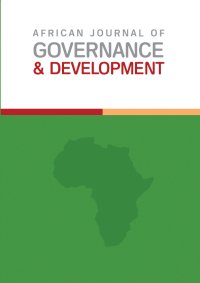Balancing the Scales between Government’s Response to the COVID-19 Pandemic and the Fulfilment of Women and Girls’ Rights in South Africa
Main Article Content
Abstract
In March 2020 the World Health Organisation (WHO) declared COVID-19 had reached a level of a global pandemic and urged governments to take drastic measures to curb the spread of the virus. To this end, the South African government declared the corona pandemic a national disaster and announced measures to combat its further spread as a matter of public urgency. Government handed down regulations and imposed restrictions. On top of the measures taken so far, the rapid spread of the virus led government to enforce a nation-wide lockdown compelling everybody to stay at home. The lockdown measures have considerably impacted
people’s livelihoods. Notably, the family, the economy, health and business, to name a few sectors, have been badly affected. Furthermore, as a vulnerable group, for many women and girls, their prolonged confinement at home shoulder to shoulder with their potential abusers, has simply intensified their vulnerability and exposure to gender-based violence. To respond to this situation, the government has a twofold obligation. First, it has the responsibility to take measures to curb the spread of the covid-19 pandemic. Second, government also has the obligation to address a further pandemic in the form of the entrenched gender violence that is
daily unleashed against women and girls in this country. The main question is how has the government balanced its Covid-19 control measures while still protecting women’s rights? The obvious observation is that the onslaught of Covid-19 has highlighted the vulnerability of women and girls in South Africa. The unavoidable question is why it is women and girls, in particular rather than men, who have had to suffer the sharper edge of the impact of the pandemic. The writer has adopted the feminist legal methodology because it holds the tools of critique that are considered necessary to unsettle the hidden and subtle assumptions that are
seldom examined in some societies but that operate effectively to the disfavour of women. The article reviews primary and secondary sources of law. On this basis it discusses the impact of the government response to the covid-19 pandemic on women and girls’ rights in South Africa. Based on findings submitted, the article makes recommendations that could inform policy formulation in South Africa.
Article Details

This work is licensed under a Creative Commons Attribution-NonCommercial-NoDerivatives 4.0 International License.
